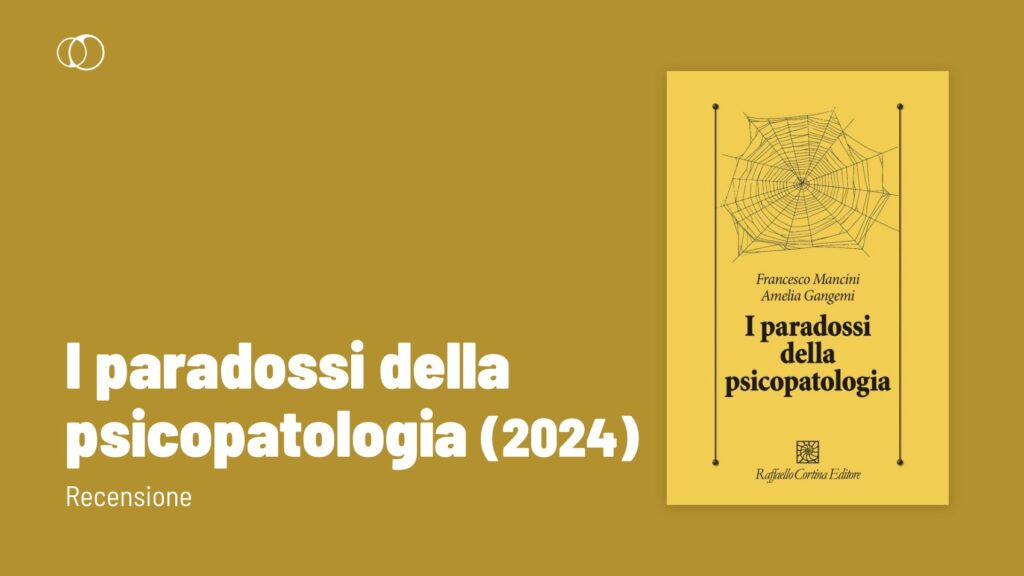
The paradoxes of psychopathology: the hidden logic of mental suffering
Imagine having a recurring, annoying thought, that you know how to be absurd, but that you cannot get out of your head. Or to constantly feel on alert, even when there is nothing to worry about. What’s “wrong” in a mind that behaves like this? What if it weren’t really “wrong”, but only blocked in a mechanism that has its own logic?
To this question try to answer the book The paradoxes of psychopathology (Raffaello Cortina Editore, 2024), written by Francesco mancinione of the best known names of cognitive psychotherapy in Italy, e Amelia Gangemiexpert in cognitive psychology and author of numerous works on human reasoning. Together they propose a counterintuitive, but powerful idea: Many psychological symptoms are not errors of the mind, but attempts (failed) to do the right thing.
According to the authors, psychological suffering often arises from rational strategieseven if dysfunctional. The mind, in essence, tries to protect us – from fault, failure, from judgment – but ends up tangling. It is a bit like trying to get out of the mobile sands by moving too much: the more you shake, the more you sink.
The heart of the theory is this: Psychological disorders follow an internal logiceven if they appear absurd from the outside. The most evident case is that of Obsessive-compulsive disorder (DOC): those who suffer often try to avoid “unacceptable” thoughts (aggressive, blasphemous, etc.) with rituals and mental controls. But these attempts make them stronger. It is not irrationality: it is hyper-rationality applied to too rigid belief system.
The paradoxes of psychopathology (2024)
An original element of the book The paradoxes of psychopathology It is attention to moral sense behind the symptoms. Many patients don’t simply want to “feel good”: they want to be Good peopleirreproachable, impeccable. And these are these standards impossible to create the ground for anxiety, fault, infinite ruminations.
Mancini and Gangemi bring the reader into the functioning of clinical thought with clear examples and concrete cases. But the book is not only aimed at professionals: it also speaks to those who, in everyday life, wonder why the mind is incepted just when we would like it to work better.
An interesting chapter of the book The paradoxes of psychopathology is dedicated to Bias cognitivethat is, mental shortcuts that often lead us to distorted evaluations. In clinical psychology, these errors become bright fuses: to interpret an accelerated beat as a sign of heart attack, for example, can trigger a panic attack. Yet even here, everything starts from a good intention: prevent danger.
In the end, the message of the book is clear and reassuring: You’re not broken, you are not wrong, you are just using tools that once needed you, but that no longer work today. The work of the therapist, then, is not “correcting” the patient, but helping him understand the meaning of his mental strategies, and to build new ones.
The paradoxes of psychopathology (2024): a human look beyond the symptom
The paradoxes of psychopathology It is not a technical manual, but an invitation to look at the human mind with more curiosity and less judgment. Because sometimes, behind a symptom, a profound desire is hidden: that of living well, but also to live well with others. And this, all in all, is very human.





